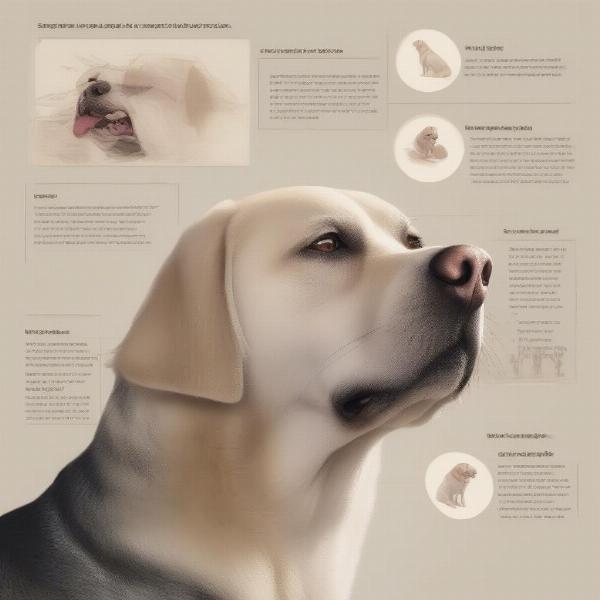A dog’s pooping schedule can reveal a lot about their health and well-being. While “dogs pooping calendar” might sound like a rigid timetable, it’s more about understanding your dog’s individual rhythm and recognizing any deviations that could signal a problem. This article will explore the factors influencing a dog’s bowel movements, how to establish a healthy routine, and when changes warrant a visit to the vet.
A consistent pooping schedule is a good indicator of a healthy digestive system. While every dog is unique, understanding the factors affecting their bowel movements empowers owners to provide the best possible care. From diet and exercise to age and underlying health conditions, various elements contribute to a dog’s individual pooping pattern. Recognizing these factors helps differentiate between normal variations and potential red flags.
Decoding Your Dog’s Pooping Habits
Several factors influence how often a dog poops. Breed, size, age, diet, and exercise levels all play a role. Puppies, for example, generally need to eliminate more frequently than adult dogs due to their faster metabolism and smaller bladder capacity. Similarly, senior dogs might experience changes in their bowel movements due to age-related factors.
Diet also significantly impacts a dog’s pooping schedule. High-fiber diets can promote more frequent bowel movements, while low-fiber diets can lead to less frequent elimination. The quality of ingredients and the digestibility of the food also influence bowel movement regularity.
Establishing a Healthy Pooping Routine
Observe your dog’s typical elimination patterns. Note how often they poop, the consistency of their stool, and any straining or discomfort. Establishing a baseline helps identify potential problems early on. Regular feeding times and consistent exercise contribute to a predictable pooping schedule.
Creating a designated potty area in your yard or establishing regular walks encourages consistent elimination habits. Positive reinforcement, such as praise or treats, can further reinforce desired behavior. Remember, patience and consistency are key to establishing a healthy routine.
When to Worry About Changes in Pooping Habits
While some variation is normal, significant changes in your dog’s pooping schedule warrant attention. Infrequent bowel movements, especially accompanied by straining, loss of appetite, or vomiting, could indicate constipation. Conversely, excessively frequent, loose stools might suggest diarrhea, which can result from various causes, including dietary indiscretions, parasites, or infections.
 Dog Constipation Symptoms
Dog Constipation Symptoms
Changes in stool color, consistency, or the presence of blood or mucus also require veterinary attention. These changes can signal underlying health issues requiring prompt diagnosis and treatment.
Conclusion
Understanding your dog’s pooping calendar is more than just tracking bathroom breaks. It’s about being attuned to their overall health and recognizing potential problems early on. By observing their routine, providing a balanced diet, and seeking veterinary care when needed, you can contribute to their long-term well-being and ensure a happy, healthy digestive system.
FAQ
- How often should a dog poop? Most adult dogs poop once or twice a day, but this can vary based on individual factors.
- What does healthy dog poop look like? Healthy poop should be firm, but not too hard, and brown in color.
- What does it mean if my dog is straining to poop? Straining could indicate constipation, which should be addressed by a veterinarian.
- When should I be concerned about changes in my dog’s pooping habits? Significant changes in frequency, consistency, or the presence of blood or mucus warrant veterinary attention.
- Can diet affect my dog’s pooping schedule? Yes, diet plays a significant role in bowel movement regularity.
- How can I establish a healthy pooping routine for my dog? Regular feeding times, consistent exercise, and a designated potty area can help establish a routine.
- What should I do if my dog hasn’t pooped in several days? Contact your veterinarian immediately, as this could indicate a serious problem.
ILM Dog is your trusted resource for expert advice on all aspects of dog care and wellbeing. From breed selection and health guidance to training tips and nutritional advice, we offer comprehensive information to help you be the best pet parent possible. Whether you’re a new dog owner or a seasoned expert, ILM Dog provides practical, reliable information tailored to your needs. Explore our website for more helpful articles and resources on everything from puppy care to senior dog wellness. Contact us at [email protected] or +44 20-3965-8624 for personalized support and guidance.